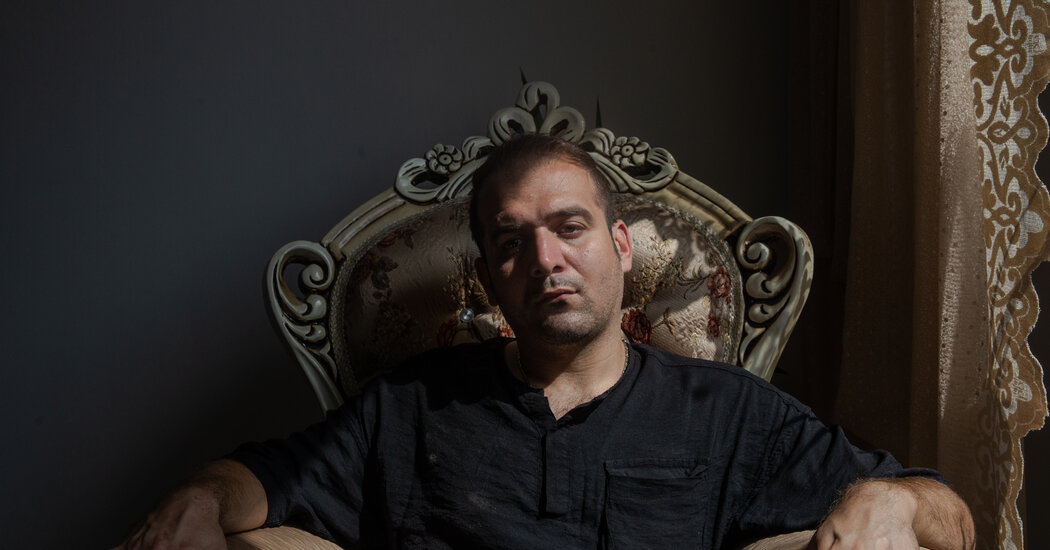For decades, Iranians fleeing persecution have found protection in the United States. But this fall, the Trump administration deported a planeload of people to Iran after making a deal with Tehran.
For decades, Iranians fleeing persecution have found protection in the United States. But this fall, the Trump administration deported a planeload of people to Iran after making a deal with Tehran.
Farnaz Fassihi and Hamed Aleaziz
In the hours before dawn one day in early October, Mehrdad Dalir found himself stranded at a bus station in Iran. He recalls feeling the heavy gaze of passers-by and shivering. He looked out of place, dressed in a prison outfit of sorts: gray sweatpants and sweatshirt, and a pair of blue plastic slippers.
About two days earlier, U.S. immigration authorities had taken Mr. Dalir from a detention facility inside an airport in Alexandria, La., and forced him aboard a plane to Iran as part of an unusual mass deportation to a country with a poor human rights record that the United States had bombed earlier this year in an effort to set back its nuclear program.
Mr. Dalir, 34, says he was shackled and handcuffed, and not given the chance to change out of the prison clothes he had worn during his time in Immigration and Customs Enforcement detention. Once in Iran, he made his way by metro and bus from Tehran’s international airport to his hometown, Mashhad, in northeast Iran.
After borrowing a cellphone, Mr. Dalir delivered the news to family members still in Mashhad: The United States had sent him back to Iran. “Maman, come and get me,” he told his mother, and broke into a sob. A blue backpack contained all his belongings — a few clothing items, his passport, immigration cards, a cellphone with a dead battery and a $20 bill.
“It feels like I’m in a nightmare,” Mr. Dalir said in a three-hour telephone interview from Iran.
He acknowledged he had entered the United States illegally in April but said he thought he would have a powerful case for asylum because he has been critical of Islamic Shariah law and a political activist. He didn’t expect to be sent back to Iran.
“I did everything in my power to stop them, but the ICE officials didn’t care. They told me, ‘You are either getting on the plane on your own, or we will tie you and send you back.’”
We are having trouble retrieving the article content.
Please enable JavaScript in your browser settings.
Thank you for your patience while we verify access. If you are in Reader mode please exit and your Times account, or for all of The Times.
Thank you for your patience while we verify access.
Want all of The Times? .
Source: www.nytimes.com
